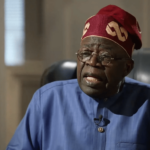Presidential legacies matter more than presidencies. They matter, indeed, more than presidents. The legacy is what is left long after the presidential term and all those who serve in it are gone. Now, any observer of this outgoing administration would have noticed some concern about what legacy President Buhari would be leaving behind for posterity. Indications for this abound in the past year at least.
First, the government went all out to de-putrefy some of the sorest of its open sores, for example, by rescuing the remaining victims of the Abuja-Kaduna train attack. In terms of the impact of an incident on an administration, the train attack was in the same league as the Chibok girls’ abduction for former President Goodluck Jonathan: there is hardly any talk about legacy with a failure of that scale.
By going all out to rescue all remaining victims and return them to their families in one fell swoop, the government gave itself a lease of life in the sands of time. Future historians will now see that rescue as the point at which high levels of insecurity eased off a bit in the country, both qualitatively and quantitatively.
Second, we can sense the government’s concern about its legacy in still other, if less clear areas. The naira redesign policy and its stalemate. The planned fuel subsidy withdrawal and its reversal. The planned salary increases policy and its reversal. The planned census and its reversal. The launch of a 30-year development plan by a government that has just about three weeks to exit the stage. You sense that all of these things, and more, are part of the frantic—even frenetic—efforts to leave behind some legacy-defining project or policy by doing some magic somewhere in the government, even this late in the day.
And then, there is also the government’s efforts to advertise, indeed, re-advertise itself and its achievements as it gets ready to leave office. All governments do this, both when they are in office as when they are out of it, and it is indeed a part of what democracy entails: to legitimise all power before the people. The government has taken out full-pages of adverts in several newspapers. Senior officials and spokespersons have ramped up their narrative about the challenges the government met on the ground, and the efforts they have put in to fix them. While the president has not only continued his now familiar line of dismissing all leadership efforts before him, but has ventured to seek forgiveness of Nigerians.
All of these are part of a deliberate effort to search for or define, or redefine, Buhari’s legacy. For the government, these are all good, but in an important sense, miss the point. First, the idea of taking out newspaper advertising to sell the government’s achievements, familiar though it is in Nigerian politics, is still rather like a lazy man’s approach to shopping for presidential legacy.
For a term in office with the historical significance of the Buhari presidency, newspaper adverts are certainly a lazy way of promoting the presidential legacy. Pray, how far would a few bullet points of a government’s achievements advertised in newspapers go in promoting or consolidating that government’s legacy? If the intellectual laziness of this approach can be forgiven, the limited benefits of it cannot.
Second, whatever the government and its officials think, the legacy of what has already been dubbed the “Buhari Years (2015-2023)” would not be judged by a few acts of valour by the government here and there, or by the frenetic attempts to create magical legacy policies out of thin air, nor yet, by self-promoting rhetoric whatever form it takes. To think that all of these would count for much in assessing President Buhari’s point is, in a sense, to admit to having missed the point of his presidency in the first place.
As president, Buhari’s legacy would be judged by three overarching metrics that would tower above all others, whatever the men and women in his government today say or do.
The first of these metrics is that President Buhari will be judged by the contextual significance of his own quest for power. There is no Nigerian alive or dead who has sought power at the highest level than Buhari. There is not a single person. No name has appeared on presidential election ballots more times than Muhammadu Buhari, at least to date. No candidate has pursued election litigation with a ferocious singularity of purpose, and yet, with stoic dignity and patience than Buhari. No politician has garnered more votes than Buhari in our presidential, or any other elections.
In fact, the last 20 years of Nigerian politics can be reduced to just a single phrase: Buhari and other things. An entire political era has been defined by him: Buhari against Obasanjo, Buhari against Yar’Adua, Buhari against Jonathan, Buhari against Atiku, Buhari against Tinubu, and well, Buhari against Buhari’s shadow, now. It is only inevitable that this long quest for power would raise, not only Buhari’s profile, but also expectations of what he can or cannot do when he finally arrived in office in 2015. In short, Buhari’s legacy would first be judged on the basis of the high expectations he himself created over so many years.
This brings me to the second metric (I will not comment on the third here today) by which the Buhari Years would be judged by posterity: the quality of the men and women appointed to high positions during his term. This metric has evolved over the years to become one of the most decisive measures of performance in political leadership in Nigeria today. The idea encapsulated by the term “IBB Boys” is no fluke in Nigerian government or political history.
It is the idea that a Nigerian president or head of state, or governor for that matter, need not be an all-round expert himself, but should identify subordinate talent in various sectors and bring them up to work with him and support them to achieve for him. It is the practical expression of this idea that has given Obasanjo’s records in office the tenacity of relevance they have retained since he left office in 2007.
It is the pillar upon which Tinubu’s success as governor in Lagos stood, and it is what defined his candidacy this year. It is what Tinubu’s nearest opponent, former Vice President Atiku Abubakar also banked on. But it found its most elaborate expression under the military presidency of General Ibrahim Babangida (1985-1993).
Unfortunately, it is this feature of political leadership that has been most singularly lacking in Buhari’s eight years. Collectively, Buhari’s appointees are perhaps the most unremarkable persons to ever serve in the Nigerian government. How many ministers or heads of agencies does anyone know who carved a name for themselves precisely for being given the opportunity to serve in high office over the past eight years?
As I told a friend in a private conversation recently, Buhari’s appointees, by my summation, fall into one of two categories. The first 70 per cent are remarkably unremarkable as judged by their CVs, by their “movers and shakers” value, and ultimately by their performance in office.
The other 30 per cent are as good as Nigeria’s best ever, but perhaps have used their abilities more to their own advantage than to advance the president’s legacy. Like it or not, Buhari’s legacy would also be judged by the quality of his appointees and what they have done in office.




